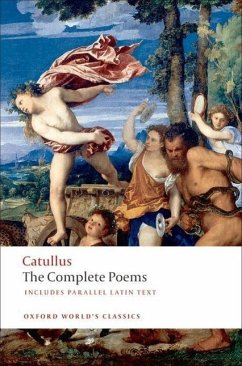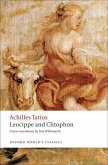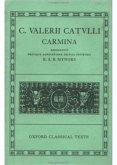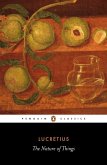Of all the classical poets Gaius Valerius Catullus (c. 84-54 BC) is the most accessible to the modern reader. Presented alongside the original Latin text, this new translation reflects Catullus' mastery of poetic forms as diverse as the lyric, the inventive epigram, and the romantic legend, and shows his passionate, and sometimes dedicated to his lover Lesbia. This edition also includes a introduction to the poet's life and work, and full explanatory notes.
ABOUT THE SERIES: For over 100 years Oxford World's Classics has made available the widest range of literature from around the globe. Each affordable volume reflects Oxford's commitment to scholarship, providing the most accurate text plus a wealth of other valuable features, including expert introductions by leading authorities, helpful notes to clarify the text, up-to-date bibliographies for further study, and much more.
ABOUT THE SERIES: For over 100 years Oxford World's Classics has made available the widest range of literature from around the globe. Each affordable volume reflects Oxford's commitment to scholarship, providing the most accurate text plus a wealth of other valuable features, including expert introductions by leading authorities, helpful notes to clarify the text, up-to-date bibliographies for further study, and much more.
`The best current translator of Latin poetry, Guy Lee, has now turned his attention to "The Poems of Catullus" ... this is yet another distinguished version from Lee's pen which deserves to become the standard version both for those with Latin and those studying Catullus in translation, and its author deserves hearty congratulations.' Greece and Rome








